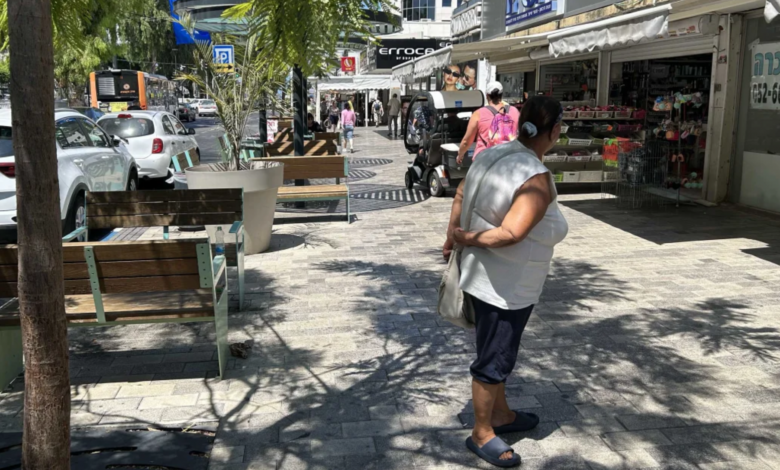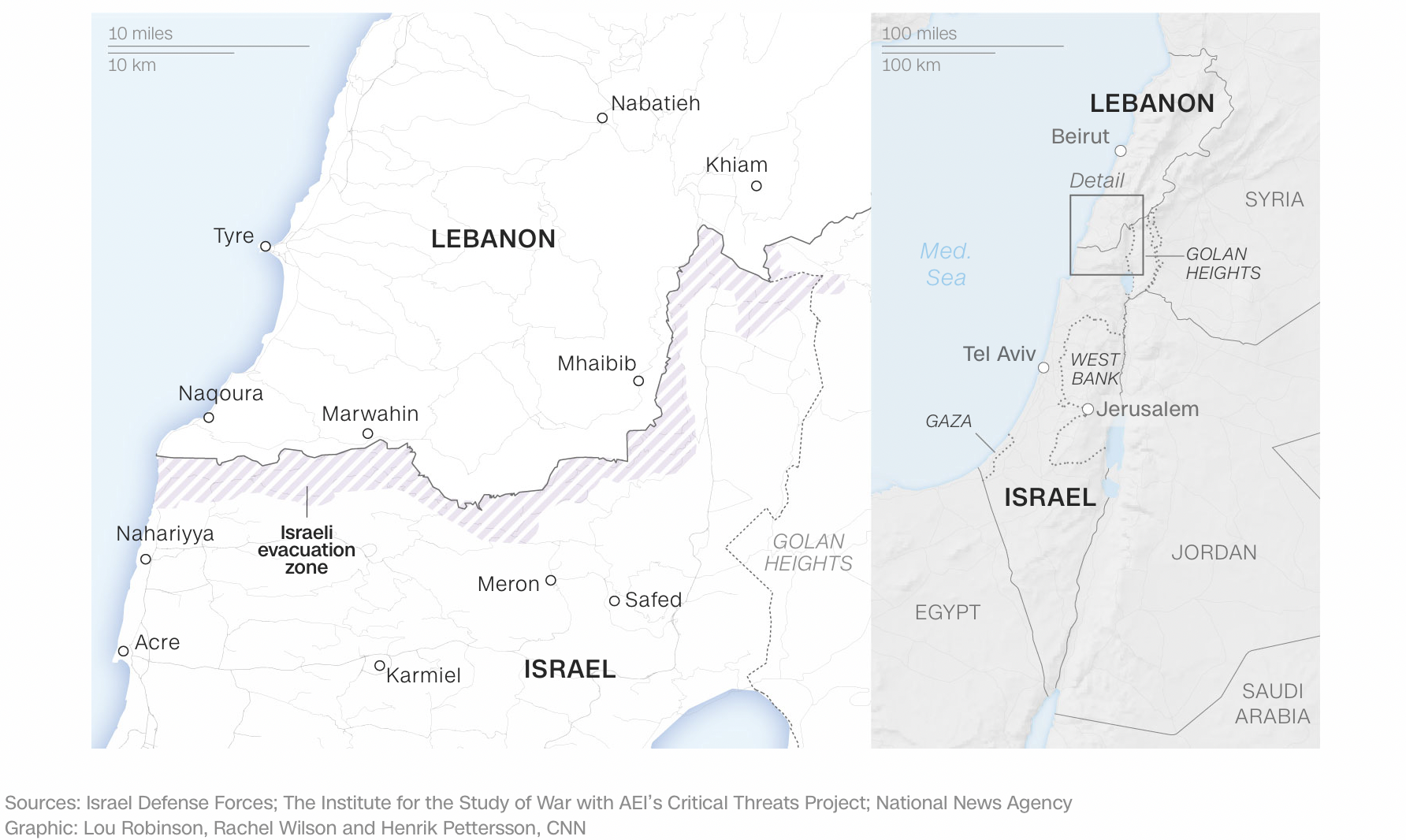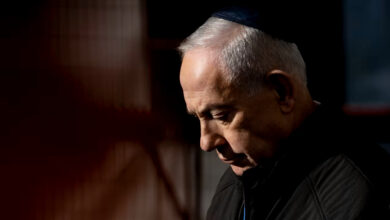
In Israel’s northern city of Nahariya, a sense of anxiety lingers among residents as they struggle to maintain daily life with the threat of war with Lebanon’s Hezbollah edging closer to their doorsteps.
The coastal city of 77,000 residents sits just 6 miles (10 kilometers) from the border with Lebanon, where the Israeli army and Hezbollah fighters have been exchanging fire for nearly 10 months.
Unlike many other communities at the Israel-Lebanon border that have become ghost towns since October, Nahariya stands out as one of the cities that has not been depopulated as it doesn’t fall within the evacuation zone.
Almost 62,000 residents of border communities have been displaced since Hezbollah and Israel started exchanging fire in October after Israel launched its war in Gaza. Forty-three Israelis have been killed and another 250 injured, according to the Israeli prime minister’s Office.
Across the border in Lebanon, at least 400 people have been killed since October 8 and more than 94,000 have been displaced, according to the Lebanese Ministry of Public Health.
Clashes at Lebanon-Israel border
Fighting continues on Lebanon’s southern border with Israel where Hezbollah — a Lebanese armed group backed by Iran — has its main area of operations. Israel has ordered the evacuation of communities along the Lebanese border. Since the start of the Hamas-Israel war on October 7, Israel’s flare-up with Hezbollah has intensified in this border region.

Though life continues in Nahariya, streets are less busy than usual, locals told CNN. While pedestrians and motorists are present, the atmosphere contrasts sharply with Tel Aviv 80 miles down the coast, where bars, beaches and restaurants remain bustling.
Tommy Lowenstein, 67, said the situation is “tense” in the north. “We feel it. We see it in the streets, we see less people.”
Nahariya has declared a state of emergency, according to an official at the city’s municipality. Residents can hear everything from outgoing artillery fire over the border to rockets that land nearby on a daily basis, the official said, speaking on the condition of anonymity as he was not authorized to speak to the media.
The sound of rockets that fall in nearby towns and kibbutzim (agricultural communes) are regularly heard in Nahariya.
On Tuesday, an Israeli interceptor missile malfunctioned amid a Hezbollah drone attack, causing an impact on the Route 4 highway near Nahariya. Several people were injured, according to the IDF.
While the city’s residents have been accustomed to cross-border attacks, the conflict has escalated in recent days after Israel assassinated Hezbollah’s top military commander Fu’ad Shukr on July 30.
The next day, former Palestinian prime minister and Hamas political leader Ismail Haniyeh was killed in Tehran in an attack Iran blamed on Israel. Israel hasn’t confirmed or denied involvement.
Israel has been anticipating a retaliatory attack from Iran and its regional proxies. But two sources familiar with the intelligence told CNN on Wednesday that it looks increasingly likely that Hezbollah may strike Israel independently of Iran.
Hezbollah leader Hassan Nasrallah said Tuesday that the group will attack Israel but is keeping the country waiting as “part of the punishment.”
Feels like war is ‘getting closer to us’
Liz Levy, 40, lives in Nahariya with her three children and says the war is taking a mental toll on her family.
“Two days ago, I had a panic attack,” she told CNN. “Every three days, there’s a siren. It’s very scary.”
Levy said she worries about bringing up her children in a climate of war, adding that her children cry whenever they hear blaring sirens warning of incoming rockets.
“My daughter, she is 7 years old, and she also had a panic attack,” she said.
Residents of the north say their experience with the conflict in the north is very different from other population centers that have been largely spared. While those living in Tel Aviv experience sporadic attacks, in the north that’s a daily occurrence, they say.
“We’re on the frontline. They (Hezbollah) are pointing at us,” Shira Jorno, 23, told CNN. “We feel it getting closer to us.”
The Nahariya municipality has added more than 40 new shelters in the city since the war began and has conducted multiple training sessions to prepare medics and emergency workers for an attack, the municipal official said.
Asked whether the city will have to evacuate if the conflict escalates, the official said there is nowhere to move such a large population.
“Nahariya has not been evacuated as a decision that was taken together with the army because there is nowhere to go,” the official told CNN, adding that as the conflict zone expands in the north, it is difficult to keep moving people south. “Now they (Hezbollah) say Haifa (will be attacked), after Haifa it will be Tel Aviv. Where do we go? To the Negev?” he said, referring to the desert region in the south of the country.
CNN’s Dana Karni, Alex Marquardt and Katie Bo Lillis contributed reporting




